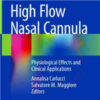Epidemiology of Surgery Associated Acute Kidney Injury (EPIS-AKI)
link.springer.comIn a comprehensive multinational study, approximately one in five patients develop PO-AKI after major surgery. Increasing severity of PO-AKI is associated with a progressive increase in adverse outcomes. Our findings indicate that PO-AKI represents a significant burden for health care worldwide.
We studied 10,568 patients and 1,945 (18.4%) developed PO-AKI (1,236 (63.5%) KDIGO stage 1,500 (25.7%) KDIGO stage 2,209 (10.7%) KDIGO stage 3).
In 33.8% PO-AKI was persistent, and 170/1945 (8.7%) of patients with PO-AKI received RRT in the ICU.
Patients with PO-AKI had greater ICU (6.3% vs. 0.7%) and hospital (8.6% vs. 1.4%) mortality, and longer ICU (median 2 (Q1-Q3, 1–3) days vs. 3 (Q1-Q3, 1–6) days) and hospital length of stay (median 14 (Q1-Q3, 9–24) days vs. 10 (Q1-Q3, 7–17) days).
Risk factors for PO-AKI included older age, comorbidities (hypertension, diabetes, chronic kidney disease), type, duration and urgency of surgery as well as intraoperative vasopressors, and aminoglycosides administration.

















